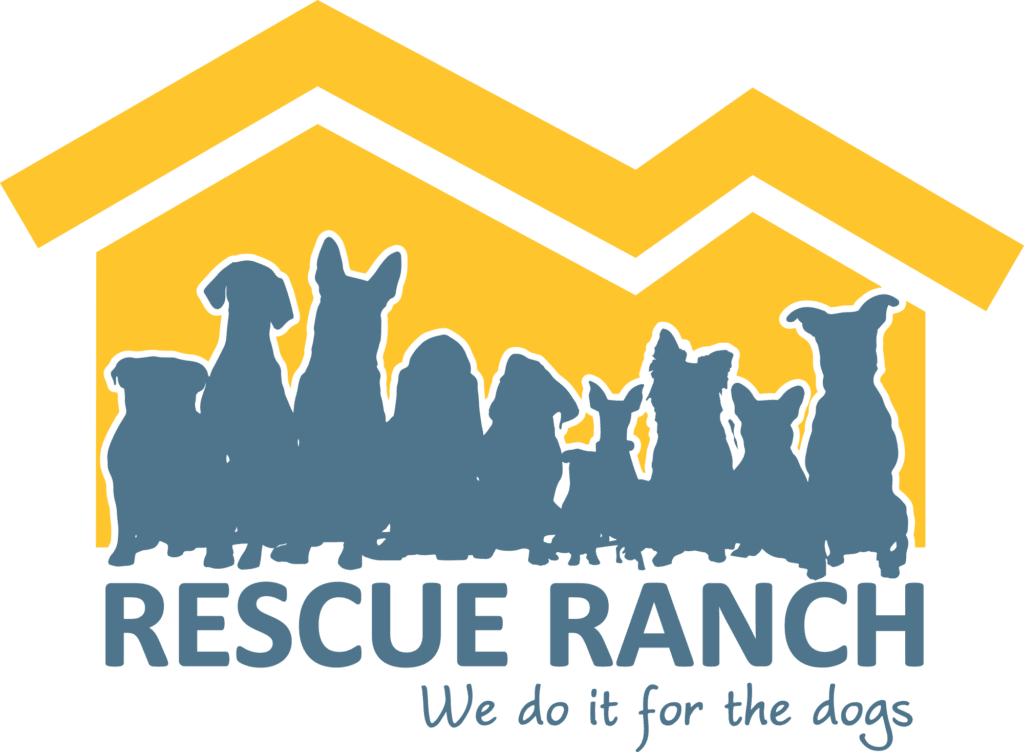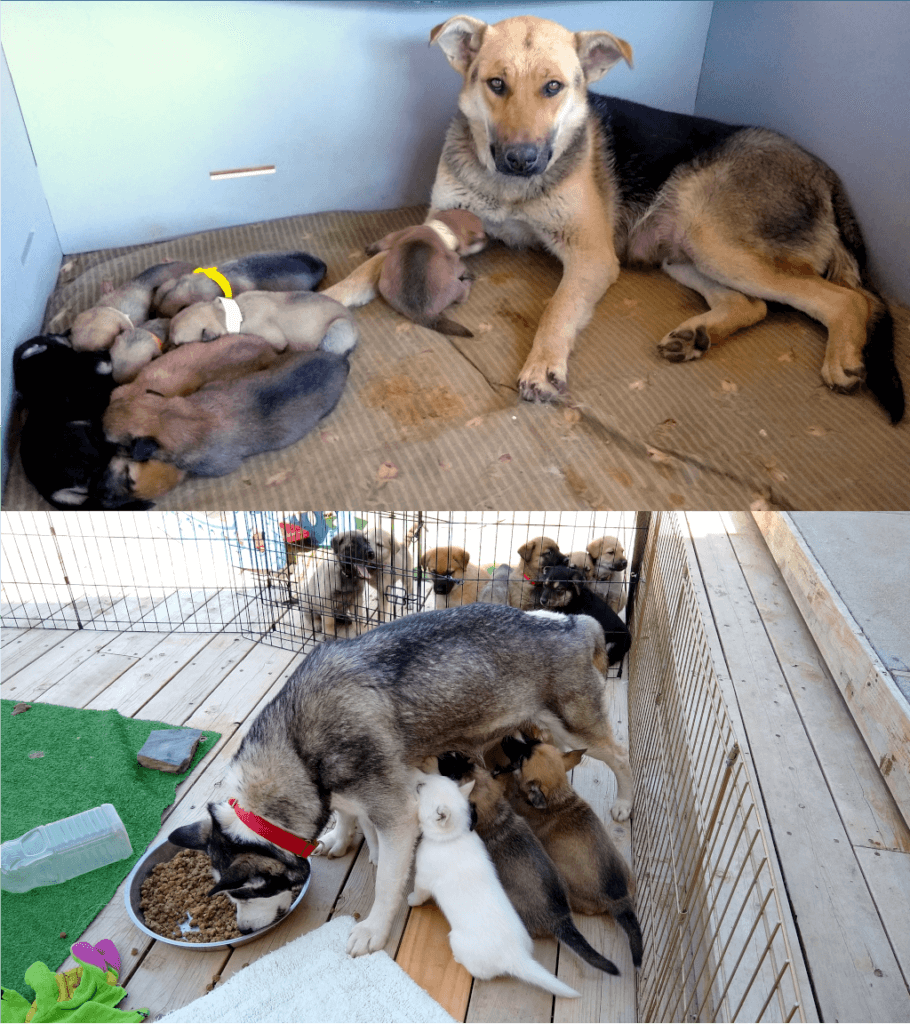Every year, about 6.5 million unwanted pets are surrendered to shelters: 3.3 million dogs and 3.2 million cats. 1.5 million are killed because the rescues are full, and there aren’t enough responsible adopters available to save them.
At Rescue Ranch, we know all about the impact of overpopulation on the ability of no-kill shelters to perform their function. The numbers are bad enough for individual unwanted animals, but we also take in pregnant mothers and mothers with puppies. On rare occasions, we also get the father.
Even a good shelter is not an appropriate environment for young puppies, so we have to find fosters willing to take them in. At any given time, we might have 35 or 40 puppies and five or six mothers in foster care.
Then, once the puppies are weaned, we have to find room for the moms at the shelter. When they’re old enough, puppies that didn’t get adopted right away also need kennel space. As soon as they go home or to the ranch, there are always new moms and pups waiting in line to take their place. It is a never ending flow.
Meanwhile, Rescue Ranch continues to network with other shelters, animal control, and independent rescuers to take in individual adult dogs. As a no-kill shelter, we prioritize dogs in high-kill situations. We really want to save them all. But we simply don’t have the space or the resources for all of the dogs that need our help.
While we can’t solve the entire problem on our own, Rescue Ranch wants to be part of the solution by helping to curb overpopulation. That’s why we’ve created RRAAP (Rescue Ranch Alter Assistance Program) to help responsible dog owners with their spay-neuter needs.
RRAAP Addresses the Top 3 Barriers to Spay-Neuter:
- Access: even if cost is not an issue, in rural communities like Yreka, there often aren’t enough veterinary resources to meet local needs. This means that patients can wait months for an appointment. As for traveling to a remote location, not everyone can. Travel can be 45 minutes or more each way; often two days in a row if the dog stays overnight. Work schedules aren’t always flexible enough, and there are other reasons community members might not be able to travel.
- Cost: spay and neuter procedures can cost up to $600 or more at a private vet clinic. The cost depends on the size and health of your pet, and on the procedure. Spaying is usually significantly more expensive. Low-cost programs, on the other hand, typically cost less than $200, even for spaying.
- Transportation: the high cost of gas is only one obstacle to transportation. Not everyone has access to a vehicle or is able to drive, even if they can afford the gas. Age, health, mobility, work schedule, and other factors affect transportation and prevent many responsible dog owners from spaying or neutering their pet.
Through RRAAP, Rescue Ranch overcomes all of these challenges by obtaining reasonably priced appointments and offering free transportation to and from the vet. In addition, when possible, we do what we can to support community members who are struggling financially.
Spay-Neuter is an act of love. You can show some love by joining Rescue Ranch efforts to become a part of the solution.

